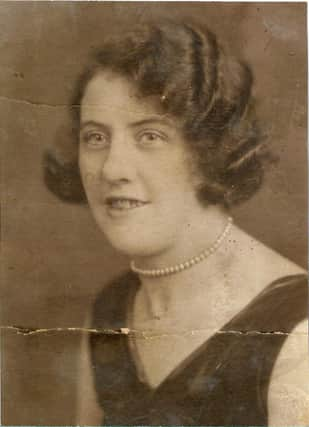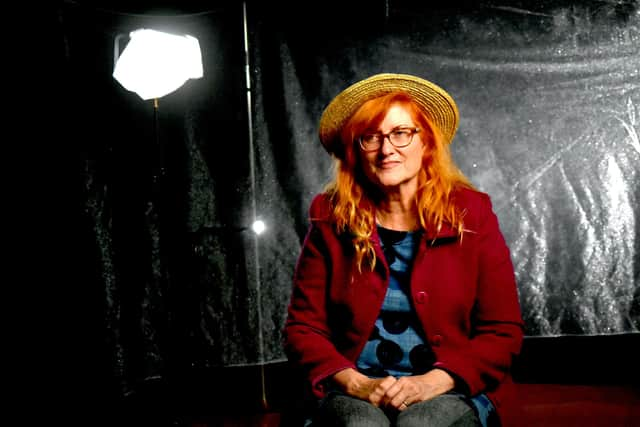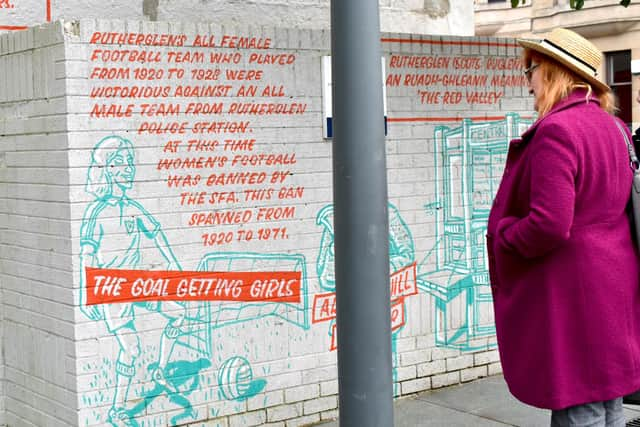New film tells story of Eddi Reader's pioneering grandmother


Now a new documentary is to shed light on the extraordinary sporting story of the acclaimed singer-songwriter’s relative.
Nearly a century before women’s football enjoyed a surge in popularity, Sadie Smith was regarded as one of the game’s trailblazers.
Advertisement
Hide AdAdvertisement
Hide AdAt a time when women footballers were ridiculed, and even banned from playing, she toured the country with her teammates while raising money for charity.
Her prowess saw the press give her the nickname ‘the female Alan Morton’, in honour of her swashbuckling style, which echoed the talented Glasgow-born left-winger, who won fame with Rangers and Scotland.
Yet for Eddi and her family, Sadie’s achievements were a mystery. She never discussed her football career with her children or grandchildren, and when she died while Eddi was still in primary school, it appeared her secrets had followed her to her grave.
Over a half a century later, however, her story is being told at last, thanks to the new film by writer, producer, and director Margot McCuaig.


‘Sadie Smith’, which will air on BBC Alba next month, reveals how Eddi’s grandmother started playing in 1922 for Rutherglen Ladies.
The following year, they were prevented from competing against Dick Kerr Ladies, then one of the most successful women’s teams in the UK, at their local park.
Undeterred, they rearranged the fixture to Glasgow’s Shawfield stadium, before running out triumphant by two goals to nil.
Following the victory, a civic reception was hosted for them in Rutherglen Town Hall, and by 1926 they were a well-known team in Scotland, touring the nation, as well as the Republic of Ireland and Northern Ireland.


Advertisement
Hide AdAdvertisement
Hide AdAccording to Dr Fiona Skillen, senior lecturer in history at Glasgow Caledonian University, Rutherglen Ladies were the most important women’s football team in interwar Scotland, and one of the most important teams in the history of Scottish women’s football.
“I’m sure many of them experienced discrimination or hostility even within their own families or communities because it would have been a controversial thing for women to do, to take up this ‘men’s’ sport,” she said.
“They were revolutionaries in Scotland because they were doing something that no one else was doing. They were breaking down barriers, challenging the status quo by existing, playing these matches and going into environments when people didn’t take them seriously and laughed at them. That takes guts to go out and do that and prove them wrong.”
Looking back, Eddi recalls her uncle playing football in the street, only to be mocked by older men. At the time, what they said made little sense, but now she has filled in the blanks on Sadie’s sporting life, things have changed.
She said: “Some of them would say to him, ‘aye, you’re good, son, but you’re not as good as your mother’. He didn't pay much attention at the time, but it all makes sense now.”
‘Sadie Smith’ will be broadcast on BBC ALBA at 9pm on April 9 and repeated at 11pm on April 15.
A message from the editor:
Thank you for reading this article. We're more reliant on your support than ever as the shift in consumer habits brought about by coronavirus impacts our advertisers. If you haven't already please consider supporting our trusted, fact-checked journalism by taking out a digital subscription.
Comments
Want to join the conversation? Please or to comment on this article.
